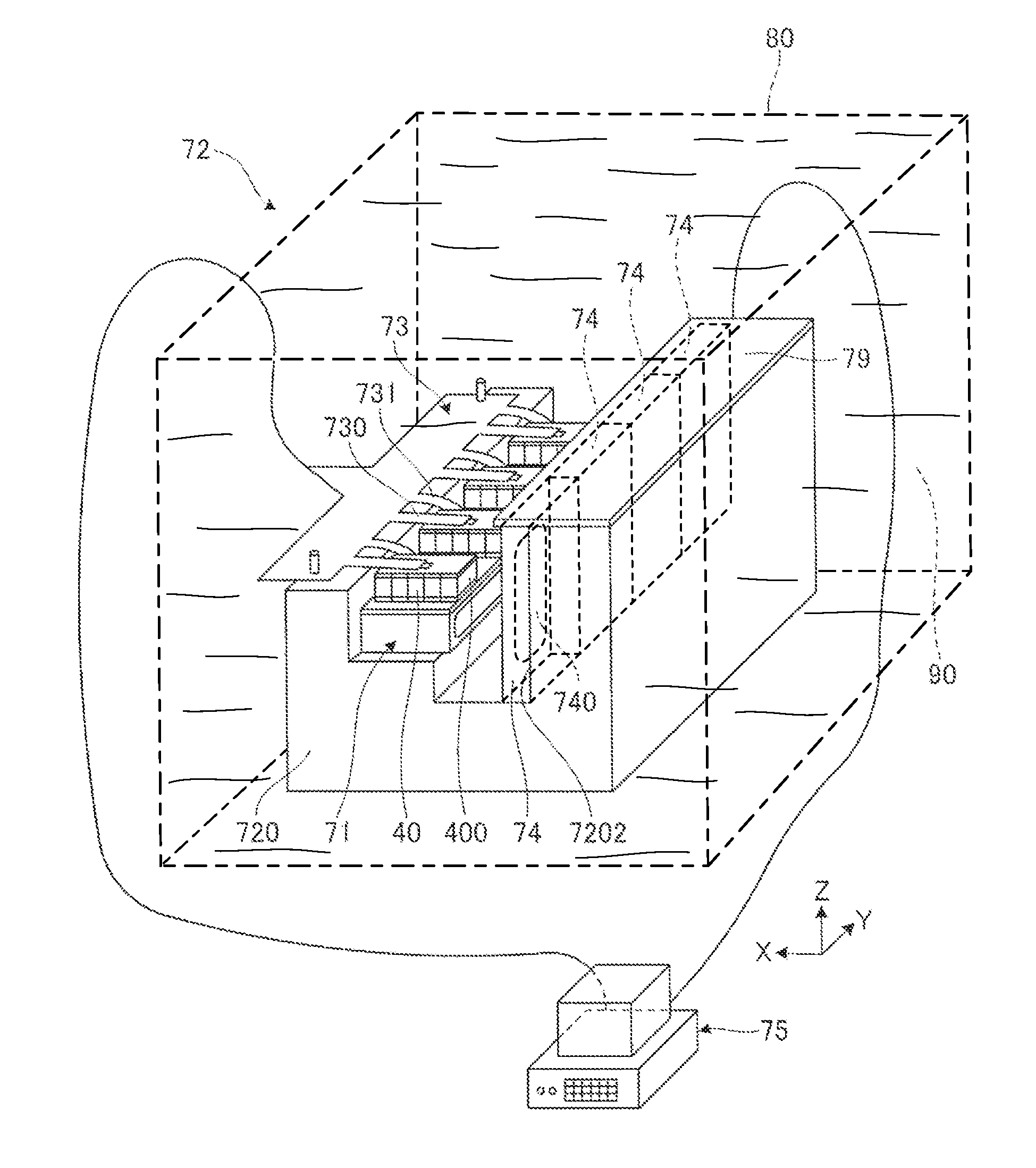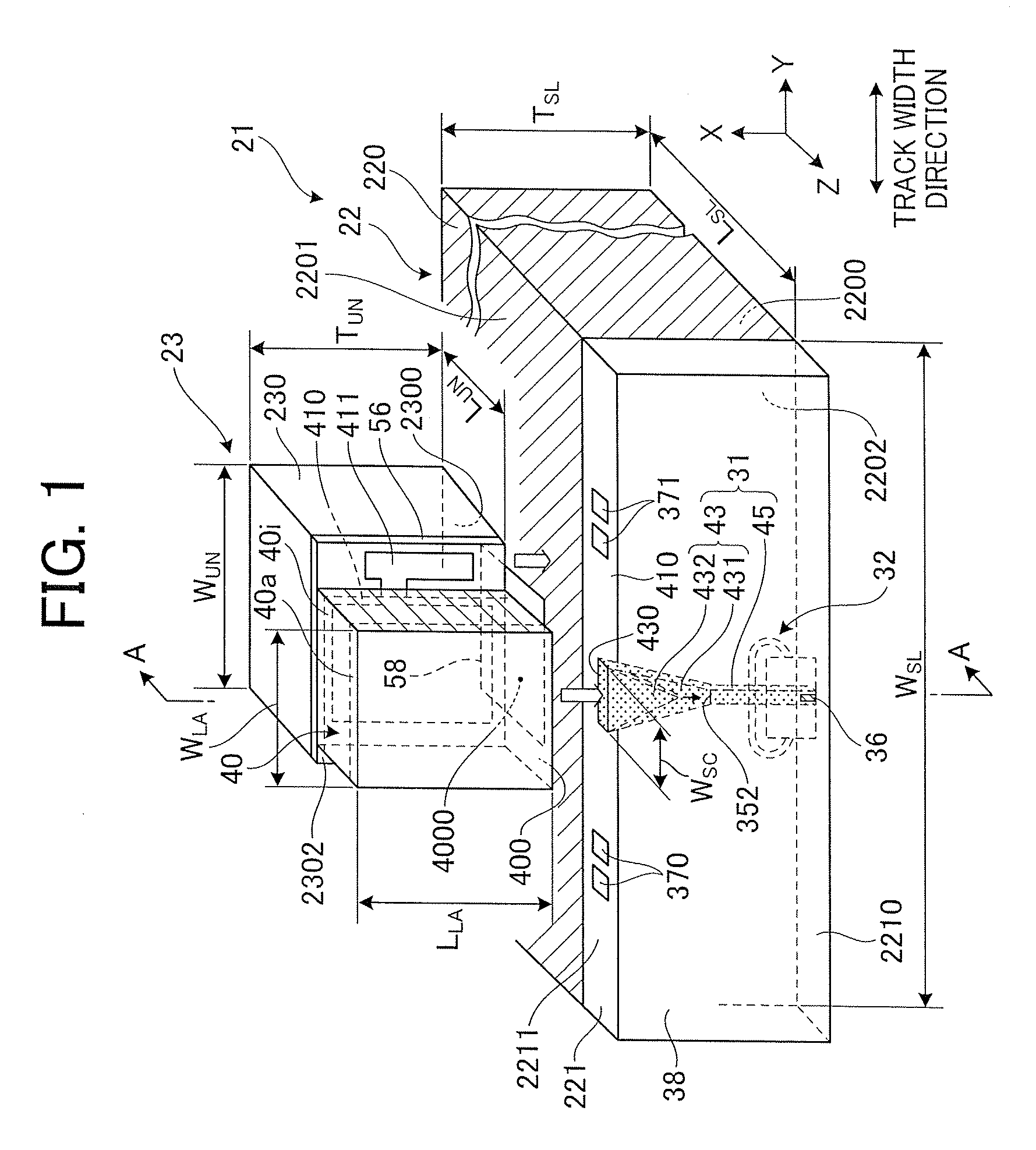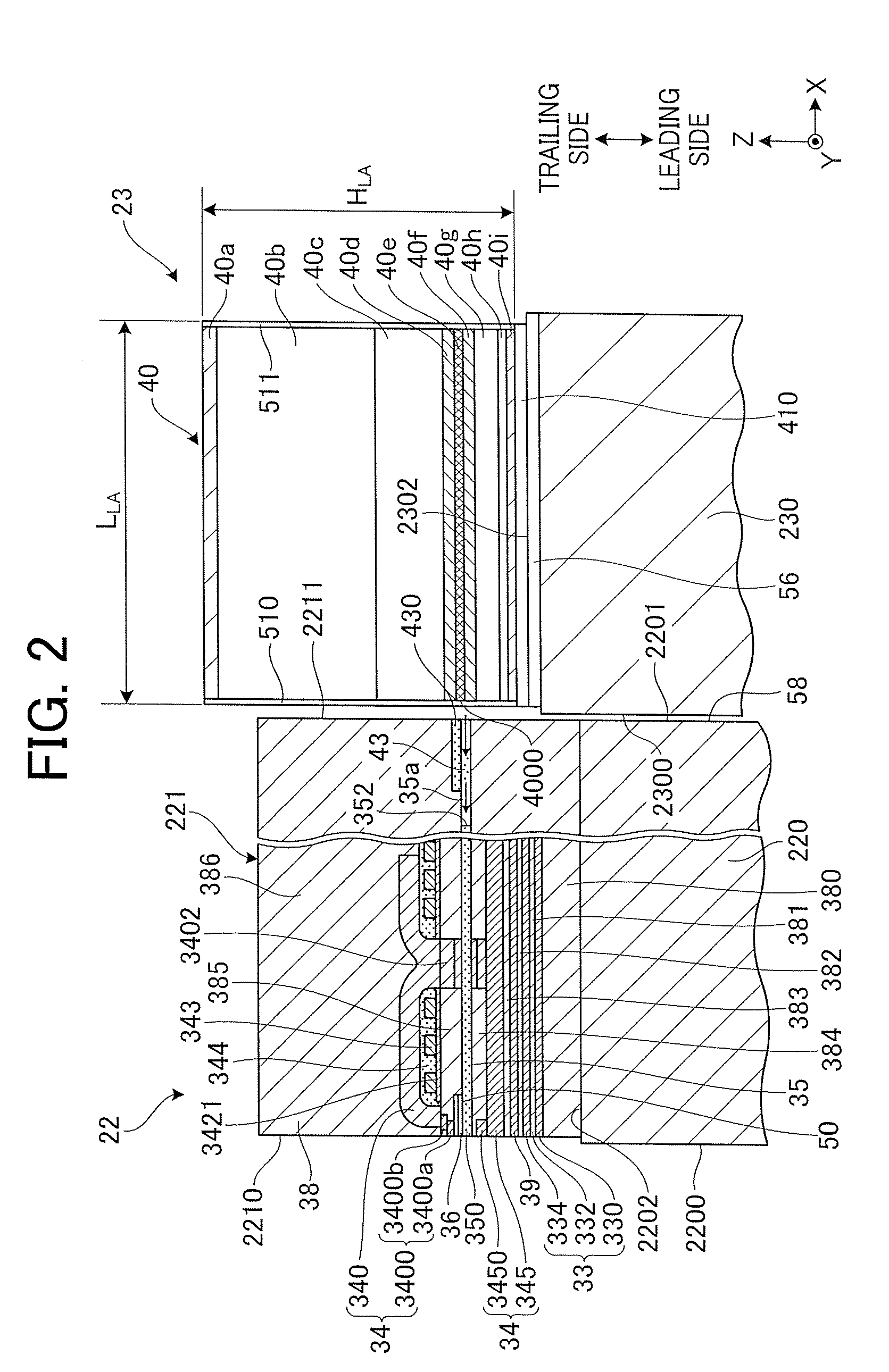Method for performing burn-in test
a burnin test and burnin technology, applied in the field of burnin test, can solve the problems of increasing the anisotropic magnetic field (coercive force) of the magnetic recording medium, reducing the thermal stability of the magnetization of the magnetic particles, and reducing the number of evaluation processes and time. , to achieve the effect of reducing the number of evaluation processes and time, facilitating simultaneous conta
- Summary
- Abstract
- Description
- Claims
- Application Information
AI Technical Summary
Benefits of technology
Problems solved by technology
Method used
Image
Examples
example
[0171]The present invention is described below in further detail by presenting a specific example.
[0172]A light source unit bar 71 was fabricated, on which 81 end surface emission type laser diodes which are the test subject are arranged.
[0173]The light source unit bar 71 which is the subject of this test was assembled into a burn-in test device as illustrated in FIG. 7, and then the burn-in test was performed. A temperature sensor was inserted in the fixture stand below the installation part of the light source unit bar 71, and the temperature of the fixture stand was measured.
[0174]Naphthalene-based oil (product name: EXXSOL) was used as the insulation liquid. 81 laser diodes and 81 photodiodes were immersed in the insulation liquid. The test was to confirm the temperature rise. Therefore, the initial setting was low at 30° C. in order to make the effect easy to observe. When the 81 laser diodes were continuously electrified for 18 min., the temperature became approximately 33° C....
PUM
 Login to View More
Login to View More Abstract
Description
Claims
Application Information
 Login to View More
Login to View More - R&D
- Intellectual Property
- Life Sciences
- Materials
- Tech Scout
- Unparalleled Data Quality
- Higher Quality Content
- 60% Fewer Hallucinations
Browse by: Latest US Patents, China's latest patents, Technical Efficacy Thesaurus, Application Domain, Technology Topic, Popular Technical Reports.
© 2025 PatSnap. All rights reserved.Legal|Privacy policy|Modern Slavery Act Transparency Statement|Sitemap|About US| Contact US: help@patsnap.com



